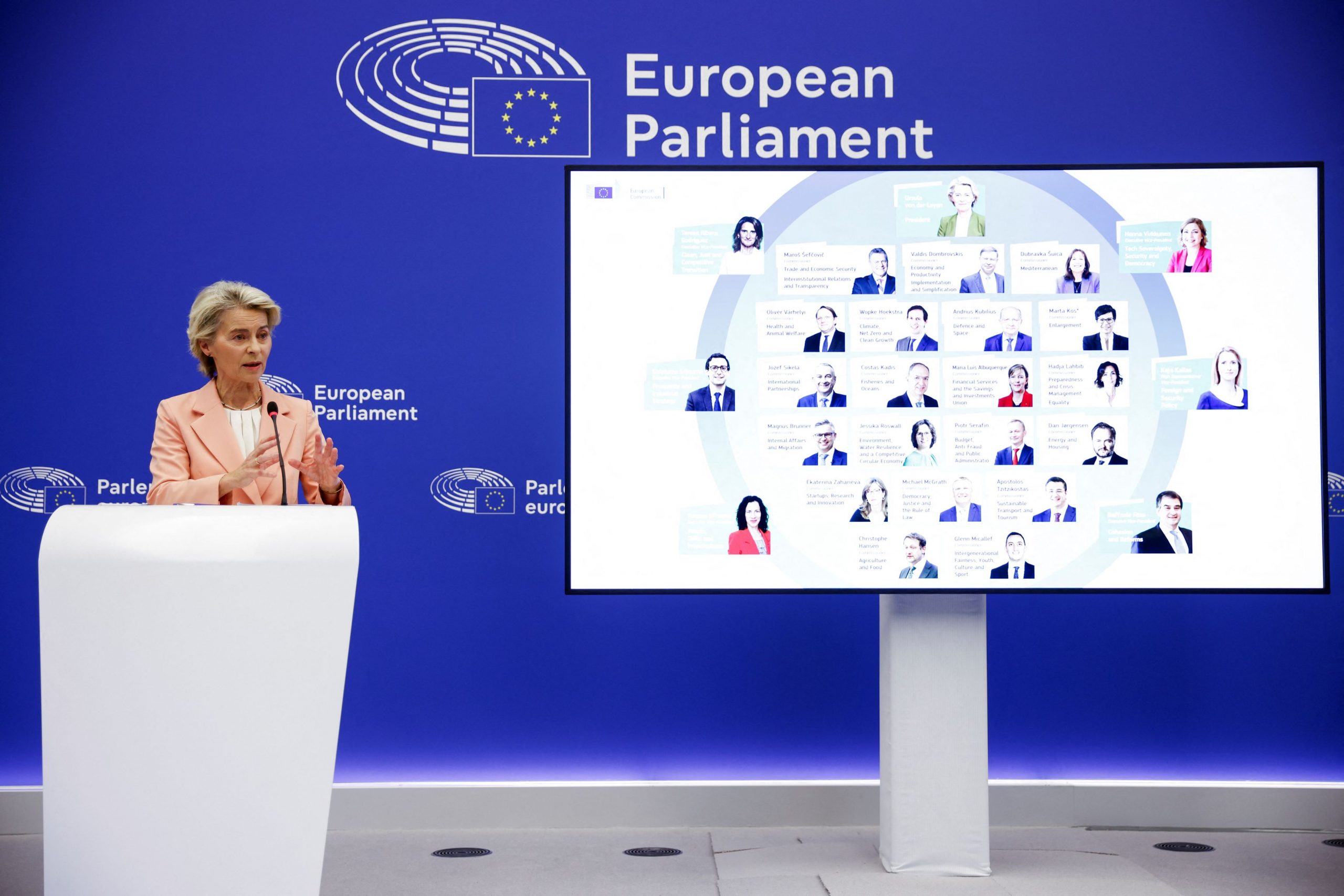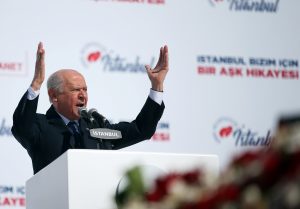EU Commission President Ursula von der Leyen on Tuesday, as widely anticipated, announced the new EU College of Commissioners, and departing from previous custom directly to waiting reporters and cameras.
The new Commission will consist of six executive vice presidents, four women and two men, with 11 women in total on the Commission, making up 40% of its composition, with von der Leyen highlighting what she termed the “importance of (gender) balance” for the EU’s executive branch.
In further qualifying the reasoning behind the appointees, she said three vice presidents come from “member states that joined before the fall of the Iron Curtain and three are from members states that joined after Europe was reunited, from the Baltics the Nordics and eastern Europe. We have ministers and prime ministers from very different backgrounds, but with one common goal- to make Europe stronger.”
Specifically, the Executive Vice Presidents are:
- Spain’s Teresa Ribera, who will be Executive Vice President for a clean, just, and competitive transition. She will also be responsible for the competition policy.
- Finland’s Henna Virkkunen, who will be Executive Vice President for tech soveignty, security, and democracy, also in charge of the digital and frontier technology portfolio.
- France’s Stéphane Séjourné, who will be Executive Vice President for prosperity and industrial strategy, responsible for industry, SMEs, and the single market portfolio.
- Estonia’s Kaja Kallas, who is nominated for High Representative Vice President.
- Romania’s Roxana Mînzatu, who will be Executive Vice President for people skills and preparedness.
- Italy’s Raffaele Fitto, who will be Executive Vice President for cohesion and reforms, overseeing the portfolio related to cohesion policy, regional development, and cities.
As previously mentioned, Greece’s Tzitzikostas was among the new commissioners, having been appointed the portfolio of sustainable transport and tourism.
“Apostolos Tzitzikostas will be the Commissioner for Sustainable Transport and Tourism. He is responsible for mobility of goods and people. These are essential sectors for our competitiveness but also for our transitions for connecting people and driving local economies” emphasized the President of the European Commission.
Dubravka Šuica from Croatia will take over as Commissioner for the Mediterranean, while the agriculture and food portfolio will be handled by Christophe Hansen from Luxembourg. The newly established defense and space portfolio goes to Lithuania’s Andrius Kubilius. Former finance minister Magnus Brunner from Austria will be tasked with managing internal affairs and migration. Finally, Cyprus, with Costas Kadis, will be responsible for fisheries and oceans. “I count on his experience to help build a resilient, competitive, and sustainable sector and to present the first European Oceans Pact,” emphasized Ursula von der Leyen.
In the afternoon, the President of the Commission, along with the candidate Commissioners of the European People’s Party (EPP), will participate in the EPP group session, where the Greek candidate Commissioner will also be present.
The European Parliament is expected to schedule hearing dates, likely between the end of October and November 4.
Ursula von der Leyen’s task was not easy, as she had to apply pressure to achieve as much gender balance as possible. The last episode was the resignation of Frenchman Thierry Breton, who was “ditched” by Emmanuel Macron, effectively removing an “enemy” of Ursula von der Leyen, as he never shied away from expressing his ambition for the presidency of the Commission.
Today I’m presenting my team for the next five years.
A team of competent and motivated women and men ready to work together.
For a stronger Union.
For a more secure Europe.
For a more competitive Europe. https://t.co/Og37dmsXcJ— Ursula von der Leyen (@vonderleyen) September 17, 2024



